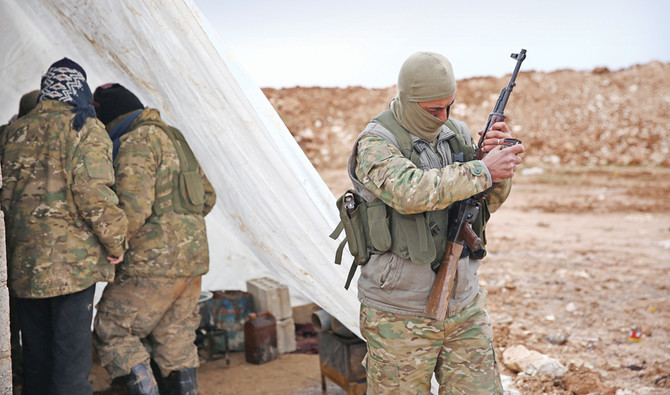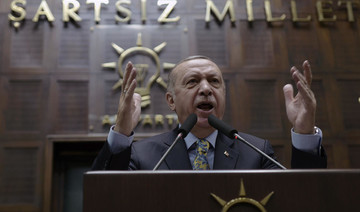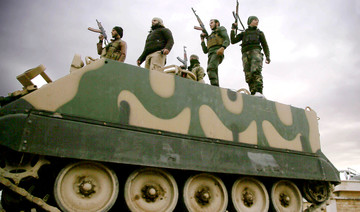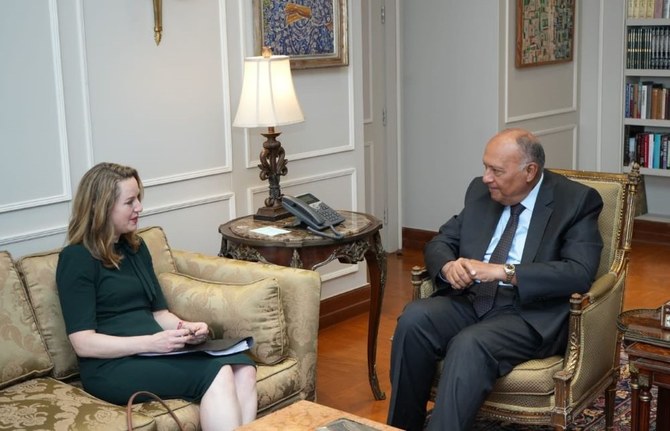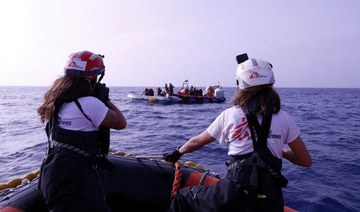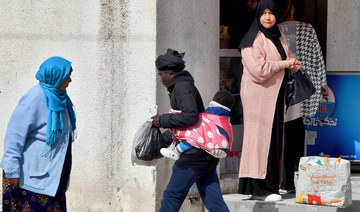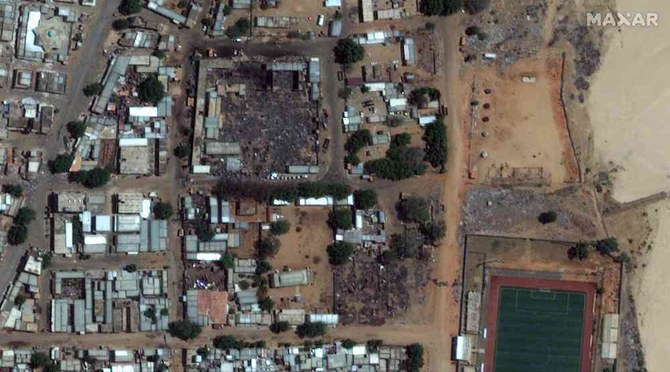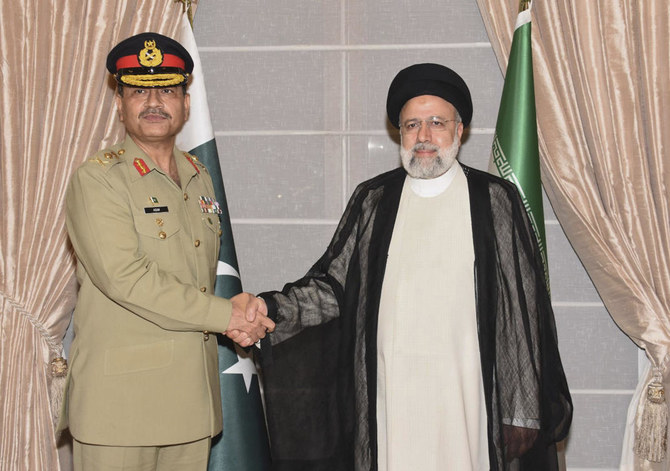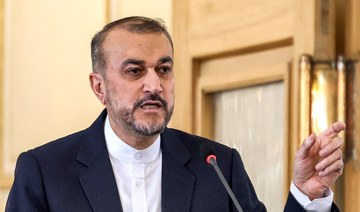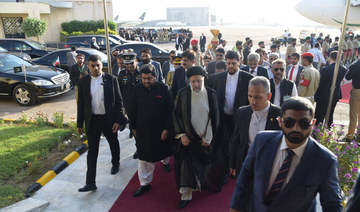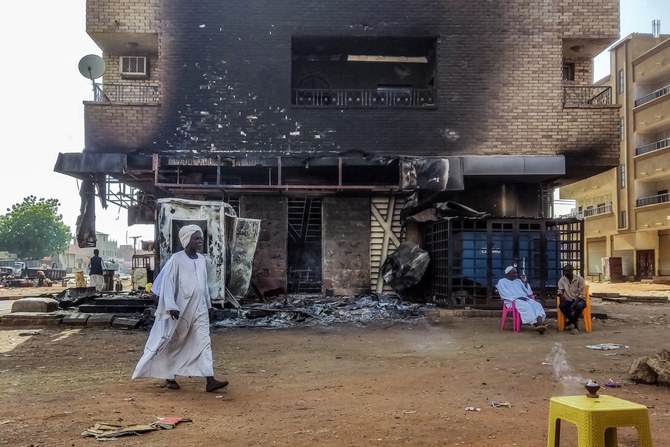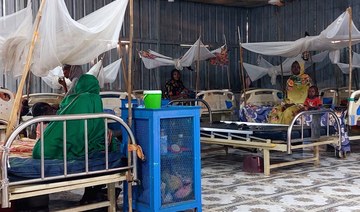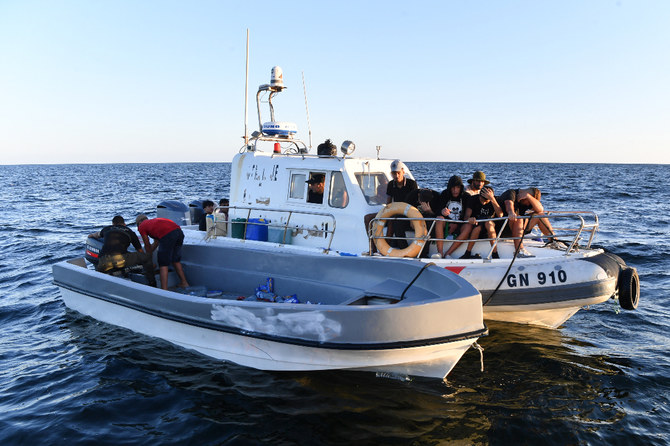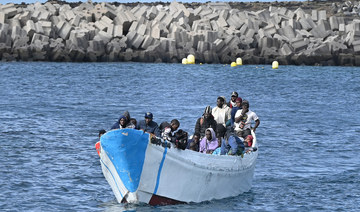ANKARA: After Turkish President Recep Tayyip Erdogan told US President Donald Trump on Sunday that Turkey was ready to take over security keeping in Manbij in northern Syria without delay, eyes are turned toward the parameters and feasibility of such a target.
As Moscow tries to have primacy after the pullout of 2,000 American troops from the country, its reaction toward Turkish maneuvers to assume the security-provider role in the predominantly Arab town is still uncertain.
Russian Foreign Minister Sergei Lavrov recently expressed the Kremlin’s expectation that the Assad government takes over the territory in eastern Syria after the US withdrawal to establish its sovereignty.
The Kurds are also gradually turning to the regime and the Kremlin for support.
When Russia recently dispatched military police to the western part of Manbij, this move was seen by experts as a counter-maneuver to remind regional partners of Russian presence against any military advancement and to fill the political and military vacuum in the area.
Ankara and Washington are also negotiating the possible creation of a 30-kilometer safe zone along the Turkish frontier with northern Syria to push back Kurdish militants from its border.
Joe Macaron, a resident fellow at the Arab Center in Washington, thinks that while Washington and Ankara remain locked in negotiating the post-US withdrawal, their core interests in northern Syria are irreconcilable.
“It is difficult to see how the US can reach a deal with Turkey to stabilize Manbij and east of Euphrates River without committing to stay in Syria in the short term, at least to make sure there is no Turkish-Kurdish confrontation,” he told Arab News.
For Macaron, the stakes are high, as both the US and Turkey want a deal to prevent the Russian-backed Syrian regime from filling the vacuum but this deal seems improbable given their widely different views on the Kurdish role in Syria.
In 2016, the town of Manbij, being located 20 miles south of the Syrian-Turkish border, was captured by US-backed alliance of Arab and Kurdish militia, known as the Syrian Democratic Forces (SDF). However, Ankara has since threatened to launch a military offensive to oblige the Kurdish militia YPG that leads the SDF to withdraw from Manbij, a predominantly Arab town, as Turkey considers the Kurdish People’s Protection Units (YPG) a terror group.
Since early November, American and Turkish troops were conducting joint patrols around the city of Manbij for averting any clashes between Turkey and Kurdish militia.
Some Syrian Arab tribes in Manbij recently called for Turkish intervention against YPG especially following its call for compulsory enlistment and discrimination against Arab locals.
A recent Daesh-claimed suicide attack in Manbij, in which about 20 people, including US service personnel, were killed, is also seen as a development that may slow the US pullout.
On Monday, a bomb attack against a YPG and US army convoy in Hasakah province in northeastern Syria killed at least five.
“As the US and Turkey are negotiating cooperation in northeastern Syria based on the Manbij model, one of the complications is that the Manbij model itself is not successfully completed yet,” Ozgur Unluhisarcikli, Ankara office director of German Marshall Fund of the US, told Arab News.
“Therefore, successful implementation of the Manbij road map would not only be an important confidence-building measure as far as Turkey is concerned, but also a prerequisite for US-Turkey cooperation in the east of the Euphrates.”
According to Unluhisarcikli, it would also be a litmus test for Turkey’s capabilities before it takes on bigger roles.
“The US cannot realistically withdraw its forces from Syria before the transition in the east of Euphrates is completed, in one form or another, and the current pace of the Manbij road map is not very promising for those who desire a quick withdrawal,” he said.
Kerim Has, a Moscow-based Russia analyst, thinks that the Kremlin will certainly not wish for and try to impede a new, large-scale military Turkish army incursion into Syria, but may have to concede to Turkey’s demands for a ‘symbolic military victory’ before the local elections in Turkey depending on what it gets in return.
“If Turkey takes the control of Manbij, we may assume firstly that, Ankara and Washington have reached a deal; secondly, YPG is withdrawing from the region and Turkish army is not going to fight against YPG and thirdly, the withdrawal of YPG from Manbij will result in favor of Turkey’s advancement in Syria,” Has told Arab News.
According to Has, Moscow can give a consent to the Turkish army for entering Manbij only if Turkey transfers control of the city to regime forces in a short period of time.
“In this case, Turkey will play a ‘subcontractor role’ of saving the face of the US in its relations with Russia and the regime on Syria and Kurds,” he said.
“For Russia, taking Manbij from Turkey, rather than the US, may seems a ‘smooth transition’ of the city’s control to Damascus.”
But, in any case, Has noted, Turkey’s further advancement in Syria is already becoming a risk for Moscow.
“Russians will probably prioritize reaching a deal between regime and the Kurds until the last moment before giving a ‘green light’ to the Turkish forces entering Manbij and put the Idlib issue on the table as the top agenda,” he said.


